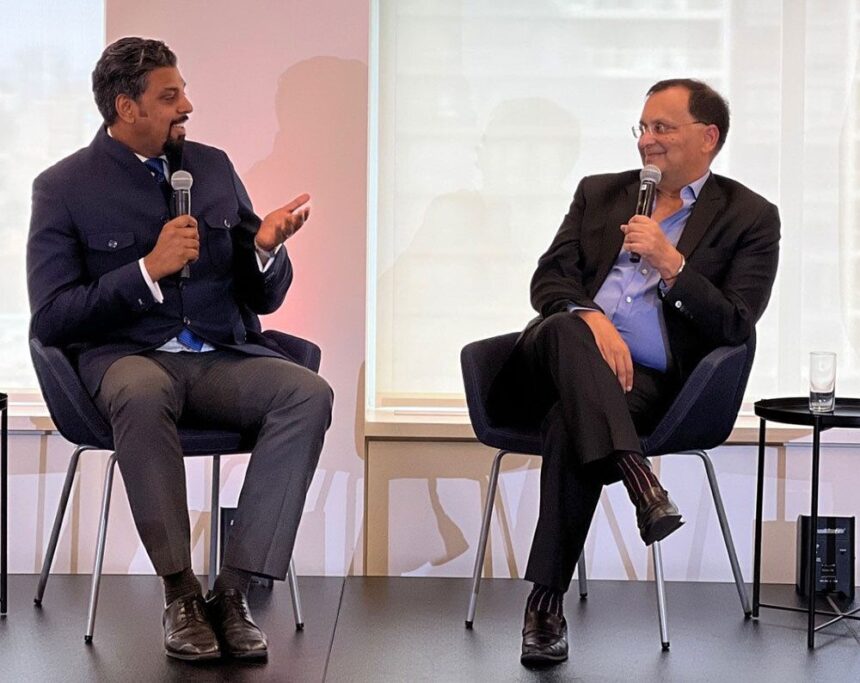In the tranquil backdrop of Ottawa’s diplomatic enclave, India’s newest ambassador to Canada, Sanjay Kumar Verma, takes calculated shots on a pickleball court—a fitting metaphor for the precise diplomacy he’s employing to navigate one of the most challenging periods in India-Canada relations. The 60-year-old career diplomat, who arrived in Canada in September 2022, now faces the delicate task of rebuilding bilateral ties that deteriorated dramatically following Canadian Prime Minister Justin Trudeau’s explosive allegations last September.
“Diplomacy is not always about formal meetings,” Verma explained during a rare interview at his residence. “Sometimes the most productive conversations happen in informal settings where barriers come down.” This philosophy guides his approach as he attempts to thaw relations between the world’s most populous democracy and a G7 nation—a relationship now characterized by mutual expulsions of diplomats, trade tensions, and suspended visa services.
The diplomatic crisis erupted when Trudeau claimed to possess intelligence linking Indian government agents to the June 2023 murder of Hardeep Singh Nijjar, a Canadian citizen labeled a terrorist by India for his advocacy of Khalistan, an independent Sikh homeland. India vehemently denied these allegations, calling them “absurd” and “politically motivated,” while demanding Canada provide concrete evidence to support its claims.
The fallout has been severe and multifaceted. Trade negotiations were suspended, high-level diplomatic contacts frozen, and Canada’s Indo-Pacific strategy effectively derailed. According to CO24 World News, bilateral trade, which reached $8.8 billion in 2022, now faces significant headwinds, particularly affecting Canada’s agricultural exports and education sector, which hosts nearly 320,000 Indian students.
“We’re operating in an environment of diminished trust,” noted Michael Hawes, executive director of Fulbright Canada and an expert on international relations. “Ambassador Verma faces the unenviable task of maintaining essential diplomatic channels while navigating serious allegations that his government categorically rejects.”
Despite these tensions, Verma has maintained an active public profile, attending business forums, cultural events, and engaging with Canada’s 1.8-million-strong Indo-Canadian community. His approach represents what analysts at CO24 Politics describe as “compartmentalized diplomacy”—advancing cooperation in less contentious areas while managing fundamental disagreements.
The stakes extend beyond bilateral relations. India’s growing strategic importance as a counterweight to China makes this diplomatic impasse particularly challenging for Canadian foreign policy. As reported by CO24 Business, Canadian pension funds have invested over $45 billion in India, making economic decoupling impractical despite political tensions.
“We need to focus on the 90% of issues where we share common interests rather than the 10% where we differ,” Verma stated, emphasizing areas like climate change, energy transition, and food security as potential bridges. This pragmatic approach aligns with India’s broader diplomatic strategy under Prime Minister Narendra Modi, which prioritizes economic and strategic interests while firmly defending sovereignty concerns.
Recent developments suggest a possible path forward. Quiet diplomatic efforts have resulted in India resuming some visa services for Canadian nationals, and trade officials from both countries have held informal discussions on the sidelines of multilateral forums. According to CO24 Canada News, these small steps indicate both nations recognize the unsustainability of prolonged diplomatic estrangement.
For Verma, whose diplomatic career spans over three decades across multiple continents, this assignment represents perhaps his most significant challenge. “Diplomats are builders of bridges, even when the waters below are turbulent,” he reflected. His measured optimism suggests that while full normalization remains distant, incremental progress is possible.
As Canada and India navigate this complex diplomatic terrain in 2024, a fundamental question emerges: Can two democracies with shared values but divergent security perceptions find common ground, or will geopolitical calculations and domestic political considerations continue to drive them apart?










